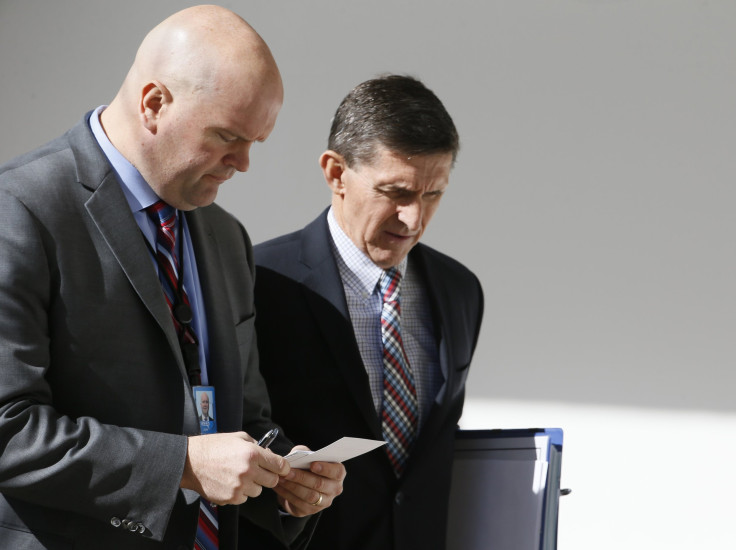Will Michael Flynn Resign? Russia Sanctions Talks Threaten Trump's National Security Adviser

Michael Flynn, the national security adviser to President Donald Trump, may have lost the support of the White House as officials probed the retired lieutenant general's contacts with Moscow prior to last year's election, Reuters reported Monday.
Flynn, who Trump named in November would serve in his upcoming administration, was accused by a number of intelligence reports of having discussed with Russian Ambassador Sergey Kislyak the possibility of rolling back sanctions imposed by Trump's predecessor, former President Barack Obama, prior to Trump's election. Flynn had consistently denied the accusations, as did supporters such as Vice President Mike Pence, until Thursday, when he appeared to back away from his flat-out denials after unnamed officials asserted that the topic sanctions had, in fact, been raised in these discussions.
After weeks of dismissing the claims, a spokesperson said Flynn “indicated that, while he had no recollection of discussing sanctions, he couldn’t be certain that the topic never came up,” according to The Washington Post. More unnamed White House officials have since been quoted by Reuters as saying that Flynn apologized to Pence over the incident, which may violate a U.S. law prohibiting civilians from affecting foreign policy. The sources also stated that Pence and White House Chief of Staff Reince Priebus were now taking the allegations against Flynn seriously.
© Copyright IBTimes 2024. All rights reserved.






















